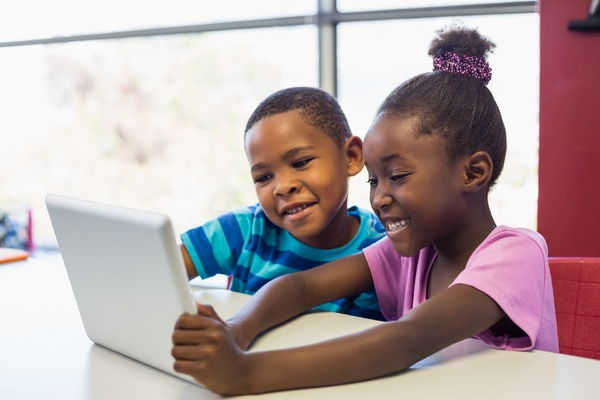Overview: Every kid is different, and each child in your family will need a different level of monitoring when it comes to their tech use. Look at time spent away from screens, how often they communicate with you and the quality of that communication, how they do with responsibilities like school and chores, and their overall behavior to make a better call on the tech monitoring each child needs.
Monitoring vs. Spying
The key difference between monitoring and spying is that people know when they’re being monitored. Similarly, your kids should know that you’re paying attention to how they’re using their screens and what you’re concerned about. Everyone is entitled to some measure of privacy, so it’s better to focus on their actions, not what they might be doing, in most cases.
Monitoring is also important because excessive screen time can be a symptom of more serious concerns, such as anxiety or depression. Make sure you’re familiar with how these present in children before assuming it’s just a screen time problem.
What to Monitor for Each Child
Parents should pay attention to each of the following items for every child in the household. What may be an area of concern for one might have no relevance at all to a sibling, meaning that the first child may merit tighter monitoring.
- What they do with their screens. The argument over whether any particular activity is “healthy” on a screen will rage forever, yet nobody will deny there’s a difference between reading a book and playing a bubble-popping game. Parental control software can tell you what kids do and for how long, helping you get a sense of how they’re spending their time.
- Their activities when away from their screens: While changing technology has meant we all spend at least a little time using computers, tablets, and phones, keep an eye on time away from screens and how your family spends it. Do your kids interact with friends outside of their phones and social media accounts? How often do they go outside? Here’s an area where different kids might need very different levels of restriction.
- How they’re managing their responsibilities: Even small amounts of screen time can add up to a problem if they’re distracting children from their homework or chores, something even a majority of teens admit is a problem. While setting aside a schedule and no-go zones, such as no tablets after bedtime, can help, make sure you’re paying attention to whether grades are staying up and chores are getting done.
- How well they communicate with you: How often they talk to you, and what they tell you when they do, can say a lot. Ask about what they’re doing online and who they’re interacting with to get a better sense of how they’re living their online lives. A secretive child may need more monitoring than one who chats happily about their online activities.

What To Do When There’s A Concern
- Talk about it. Lay out what you’ve observed and give them room to discuss what might be happening or how they’re feeling. If they know you’re listening, they’ll speak.
- Discuss how to fix the problem: In many cases, this is a matter of time management; kids get absorbed in a game, book, or TV show and then have to rush to do homework or clean the dishes. Laying out some stricter boundaries, such as homework before screen time, enforced with parental control software, can help.
- Be ready for complaints: It’s only human to compare your situation to other people’s. If kids object or point out that their friends or siblings don’t have similar restrictions, stick to your concerns about this particular child and your reasoning behind their specific restrictions. If possible, give them an opportunity to appeal your decisions if the problematic behavior improves.
Monitoring usage and enforcing the rules can be complicated. Learn how parental control software can simplify it: Healthy habits start with Screen Time.


Join the conversation